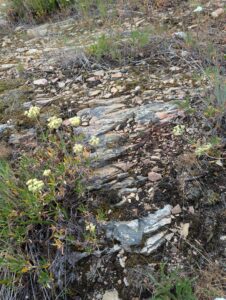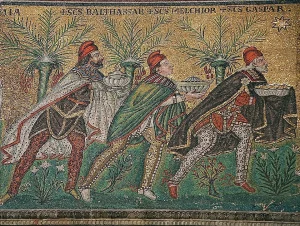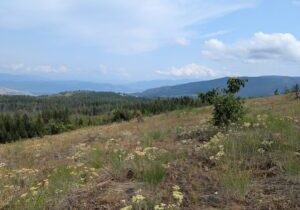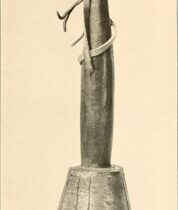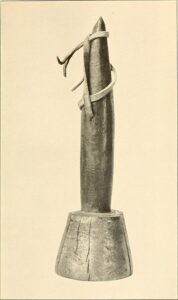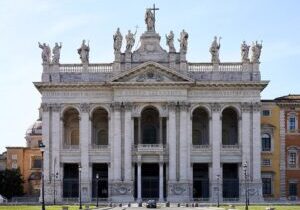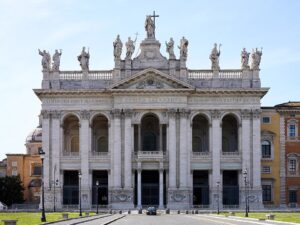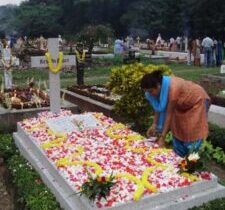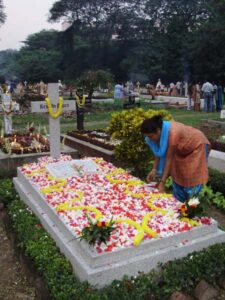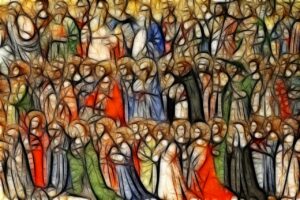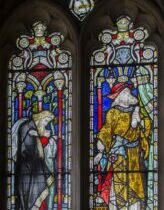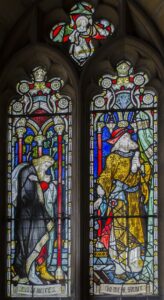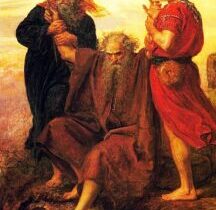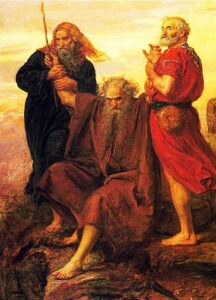Let Your Light Shine – Light the Way
 “You are the light of the world … (Y)our light must shine before others, that they may see your good deeds and glorify your heavenly Father.”
“You are the light of the world … (Y)our light must shine before others, that they may see your good deeds and glorify your heavenly Father.”
Jesus spoke one day on a mountainside to the crowds of people who came out to hear his words. He gave them a series of principles to guide their actions in ways that would embody holiness in their daily lives. We call these principles the Beatitudes – “Blessed are they who…”
The Beatitudes might be taken as a beautiful image of an impossible goal, to be achieved by only a few very holy people. But Jesus intended them to be taken as a new way of life. Those words were not just beautiful ideals, concrete actions must follow and Jesus was clear that this was expected of those who would be his followers.
“You are the light of the world.” Light on a mountaintop shining from a city – it cannot be ignored. Light hidden under a basket does no good for anyone. Light must shine. The light of lives based on the Beatitudes is the calling of Jesus’ followers. It leads to the glory of the Father becoming visible. (Mt 5:13-16)
It’s an interesting parallel that the first thing created by God in the beginning, according to the book of Genesis, was light. “Let there be light.” And light came into the darkness. The light of creation and the creator, bursting forth into the creation of all that is in our universe, will shine through the lives of those who live according to the Son’s teachings that day on the mountain. Through our lives, the light shines forth or not. This light of holiness shining through each of us shows a bit of the wonder and awesome reality of the Father, the Father’s glory.
This is a pretty daunting thought. How can any one of us ever hope to live our lives in ways that will truly shine forth the Father’s love? How can we do anything so heroic that people will throng to the community, begging to become one of us? Is any of that humanly possible?
Fortunately, it doesn’t require superhuman qualities or behaviors or actions to live as children of the Father, shining the light of holiness into our world. It comes through the little things we say and do as well as through the big, bold, brave things we may have to do once in a while.
How will we know what we are to do to share the light? Most of the time, I think we don’t actually know just what this means. We go about our daily lives, meeting people, doing our daily tasks, and sometimes wondering what it all means. We don’t often think about the reality that the little things we do, the way we speak to others, the way we are patient when things or people move slowly, the times we smile rather than scowl at someone we meet on the sidewalk, or in the grocery store, or driving another car, the times we find the humor in an unexpected delay and trust that all will work out in the end – these are the times light shines in the darkness. When we offer a word or a hand of help or comfort – the light shines forth. When we spend time helping as volunteers to feed the hungry or help young people get the training needed for new careers – the light shines forth. When we simply help get our families up and out the door in the morning with a smile to carry on their way to a new day – the light shines forth.
We don’t have to look far and wide to find what we are to do and how we are to serve. Each of us has gifts and talents. Those are what we are to use.
What comes easily to you? What is as easy as falling off a log? What do you love doing? Those are your gifts. Find ways to use them.
What is hard? What do you never quite get around to doing? Those may not be your gifts. Find someone for whom they are easy and become a team! When each of you uses your gifts, amazing things can happen. The light shines forth again.
As bread is shared with the hungry, the homeless are sheltered, those without warm coats for the winter receive ones of their own, and the suffering receive help and hope – the light breaks forth. The glory of the Lord shines forth in support. And the impossible becomes possible. A new, richer community is formed. Life is transformed. Opportunities are broadened for all.
As we move through this coming week, may we remember to trust the Lord to be with us. We don’t have to do it all by ourselves. Most often, we simply have to step out in trust that others will show up to help when we step forward in faith. Sometimes, it seems like people will join the effort simply because they recognize our inability to do it all by ourselves. They throw up their hands and join in – not because they are convinced it’s something that has to be done, but because they know we are sincere and they don’t want to see our efforts fail. And amazing things happen as a result. The light shines forth!
May the Lord be with you this week, shining through each of our lives, pointing the way to our amazing Father.
Readings for the Fifth Sunday in Ordinary Time – Cycle A
Read More




